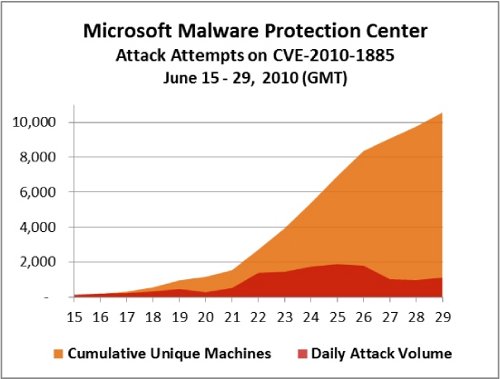According to Microsoft’s Holly Stewart: “In the past week...attacks have picked up and are no longer limited to specific geographies or targets, and we would like to ensure that customers are aware of this broader distribution”. The company’s statistics suggest that the majority of computers being affected by the exploit are in the United States, Russia, Portugal, Germany, and Brazil. Of those, Portugal and Russia have the highest concentration of affected machines, with the former seeing almost one in every 200 machines impacted.

The attacks require users to visit an infected website, frequently via a link in an email. This will then download various Trojans, viruses and other Malware to the user’s computer by exploiting the vulnerability. Microsoft has reported that the program Obitel has been included in many of the recent attacks, which acts by downloading other malware.
Systems running 32- and 64-bit versions of Windows XP as well as those running 32-bit, 64-bit and IA-64 versions of Windows Server 2003 are all potentially at risk. Though Microsoft has yet to release a fix for the exploit, the company has provided a number of workarounds to limit the vulnerability in a security advisory. The announcement also points out that all Microsoft security software is capable of detecting and stopping software that is attempting to make use of this exploit.













